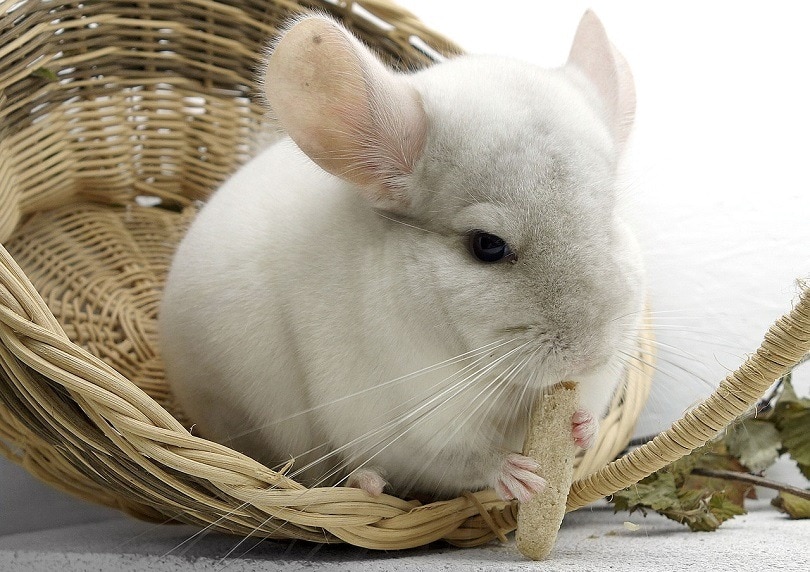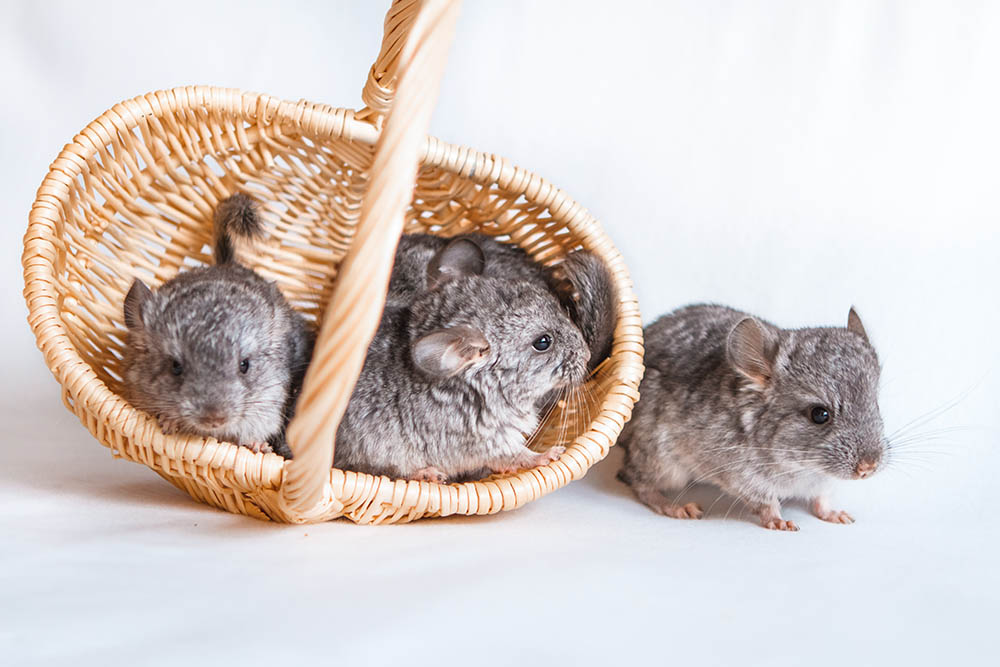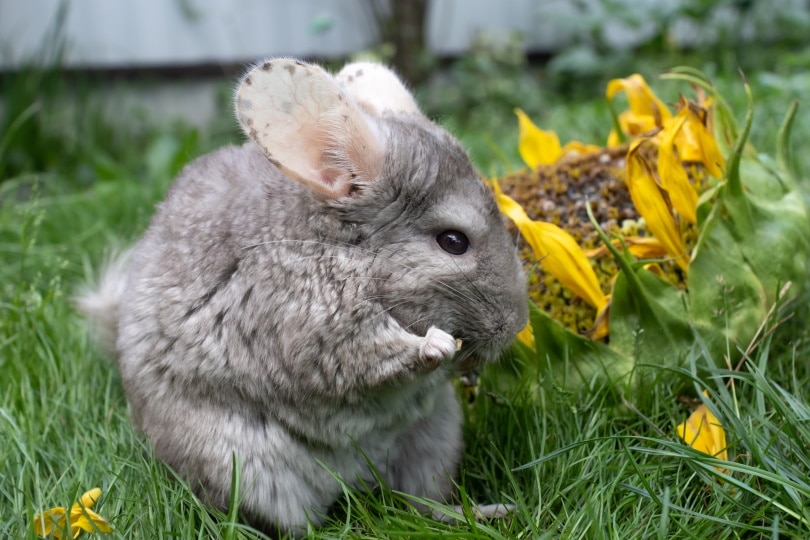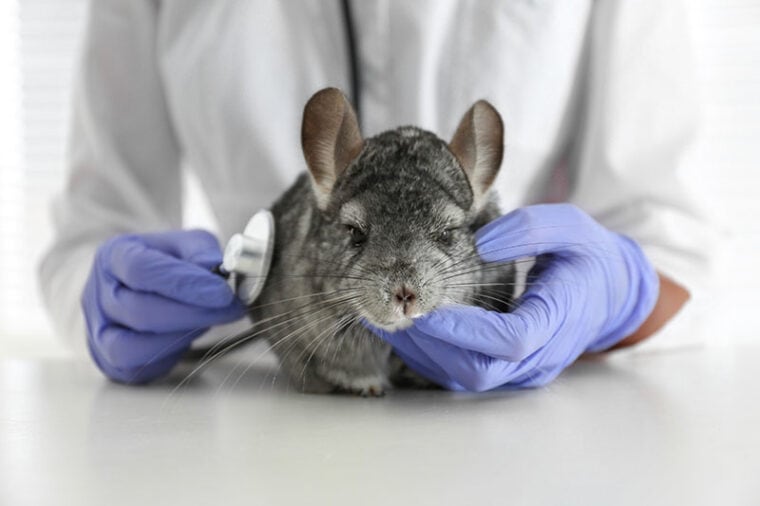
While most people know you can get pet insurance for your dog or cat to help cover unexpected vet bills, many people don’t know there is also pet insurance available for chinchillas called exotic pet insurance.
Exotic pet insurance is designed to cover a wide variety of injuries and medical conditions affecting all kinds of out-of-the-ordinary pets like geckos, chameleons, ferrets, rabbits, snakes, turtles, and chinchillas.
As you may know, exotic pets like chinchillas often require specialized medical care. The veterinarians treating these animals are usually specialists who’ve undergone advanced training. Just like in the world of human health care, the doctors specializing in specific fields use more advanced equipment and typically cost more.
How Pet Insurance for Chinchillas Works
Exotic pet insurance works in the same way as regular pet insurance. As a chinchilla owner who is taking out the exotic insurance coverage, you’ll have to pay a monthly premium.
The best way to learn what is covered by exotic pet insurance is to compare policies from a few different companies and find the one that best fits your needs.
Top Rated Pet Insurance Companies:
If you must take your chinchilla to the vet for some type of treatment, you’re typically required to cover those veterinarian costs at the time of service. However, your insurance company will likely reimburse you for a set amount of that cost or a percentage.
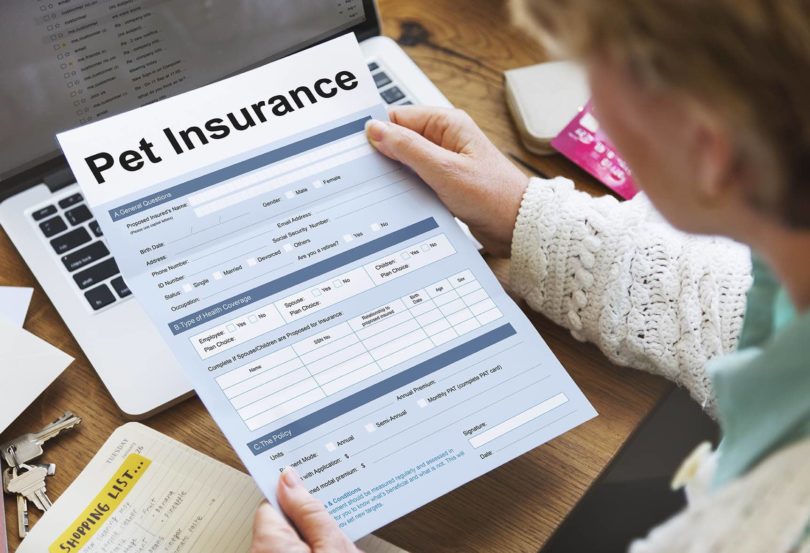
What Exotic Pet Insurance Covers
A typical exotic pet insurance plan covers quite a bit. If you take out exotic pet insurance for your chinchilla, you can expect your plan to cover the following:

What Exotic Pet Insurance Won’t Cover
While there are many things exotic pet insurance covers for a chinchilla, there are some exclusions to be aware of. Most insurers will not cover any pre-existing conditions your chinchilla had before you signed up for the coverage.
For example, if your chinchilla was sick or injured before you signed up for the insurance, your policy won’t cover the costs of treating the illness or injuries as they’ll be considered pre-existing conditions.
Other costs that are not covered by exotic pet insurance include:
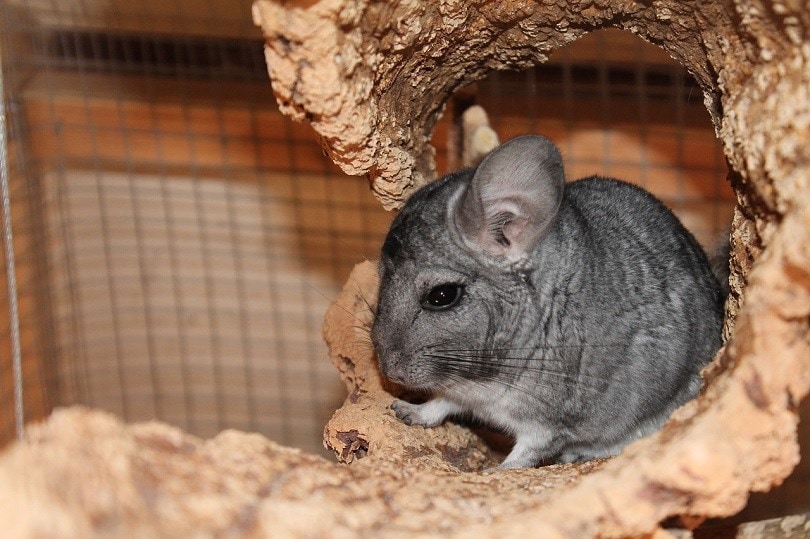
Common Chinchilla Health Problems
Now that you know a bit about insuring a pet chinchilla, you’re probably wondering what types of health issues these animals face. These small, dense-coated animals native to South America are prone to a few common diseases and health conditions including:
If you suspect your chinchilla is suffering from any of these health problems, contact your vet right away. If your pet needs treatment and you have exotic pet insurance, contact your insurance company to find out if the needed treatment is covered under your policy.
Just remember that even if you have coverage for the necessary treatment, you’ll likely have to pay the veterinarian costs out-of-pocket at the time of service. While this may be a financial hardship at the time, your insurance company will reimburse you for at least some of the money you spent, so hang in there and be patient!
Tips for Keeping Your Chinchilla Safe and Healthy
The two most important things your chinchilla needs to stay safe and healthy are good food and a safe and secure habitat. Feed your little guy chinchilla pellets, quality small animal hay, and some natural treats like dried apples, leafy greens, raisins, or sunflower seeds.
A good habitat for a chinchilla is a roomy and secure cage with a plastic bottom that won’t hurt the animal’s feet, along with some appropriate bedding like pine shavings or shredded paper. Since these animals are prone to heat stroke, avoid keeping the cage in a hot and humid area of your home. If necessary, use air conditioning to keep the temperature and humidity levels low to moderate.
If you have other pets at home, like a dog or cat, keep them away from your chinchilla. Both dogs and cats have strong prey drives. This means your dog or cat may view your chinchilla as prey wherein they could bite it or even kill the poor thing.
Keeping a chinchilla safe and healthy is relatively easy. Be sure to monitor your chinchilla’s health and watch out for problems like overgrown teeth or signs of heat stroke, which could lead to very serious issues or even death.

- Related Read: Do Chinchillas Need a Friend? Are They OK Alone?
Conclusion
It’s good to know that there is pet insurance for chinchillas. Whether you plan on getting a pet chinchilla or already have one, it’s wise to buy some exotic pet insurance because you never know what is going to happen. This type of insurance will cover quite a bit, which could ultimately save you thousands of dollars if your chinchilla becomes sick or injured, so don’t take any chances!
- Related Read: Is There Pet Insurance for Ferrets?
Featured Image Credit: New Africa, Shutterstock


